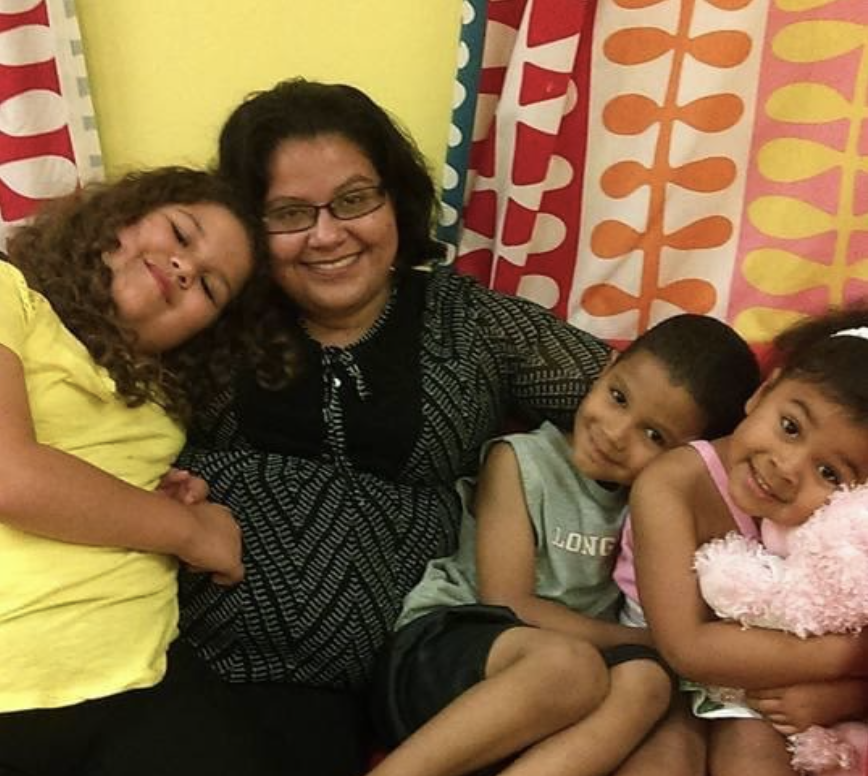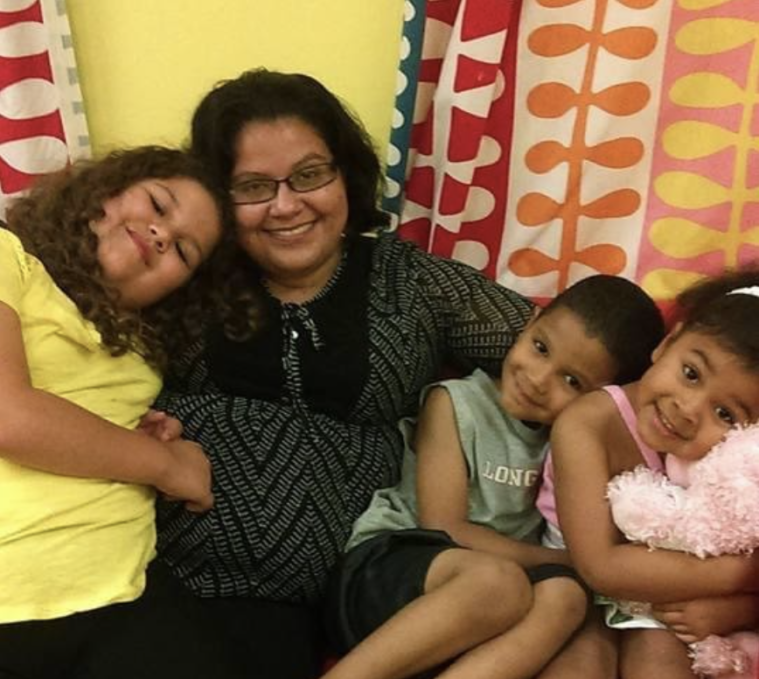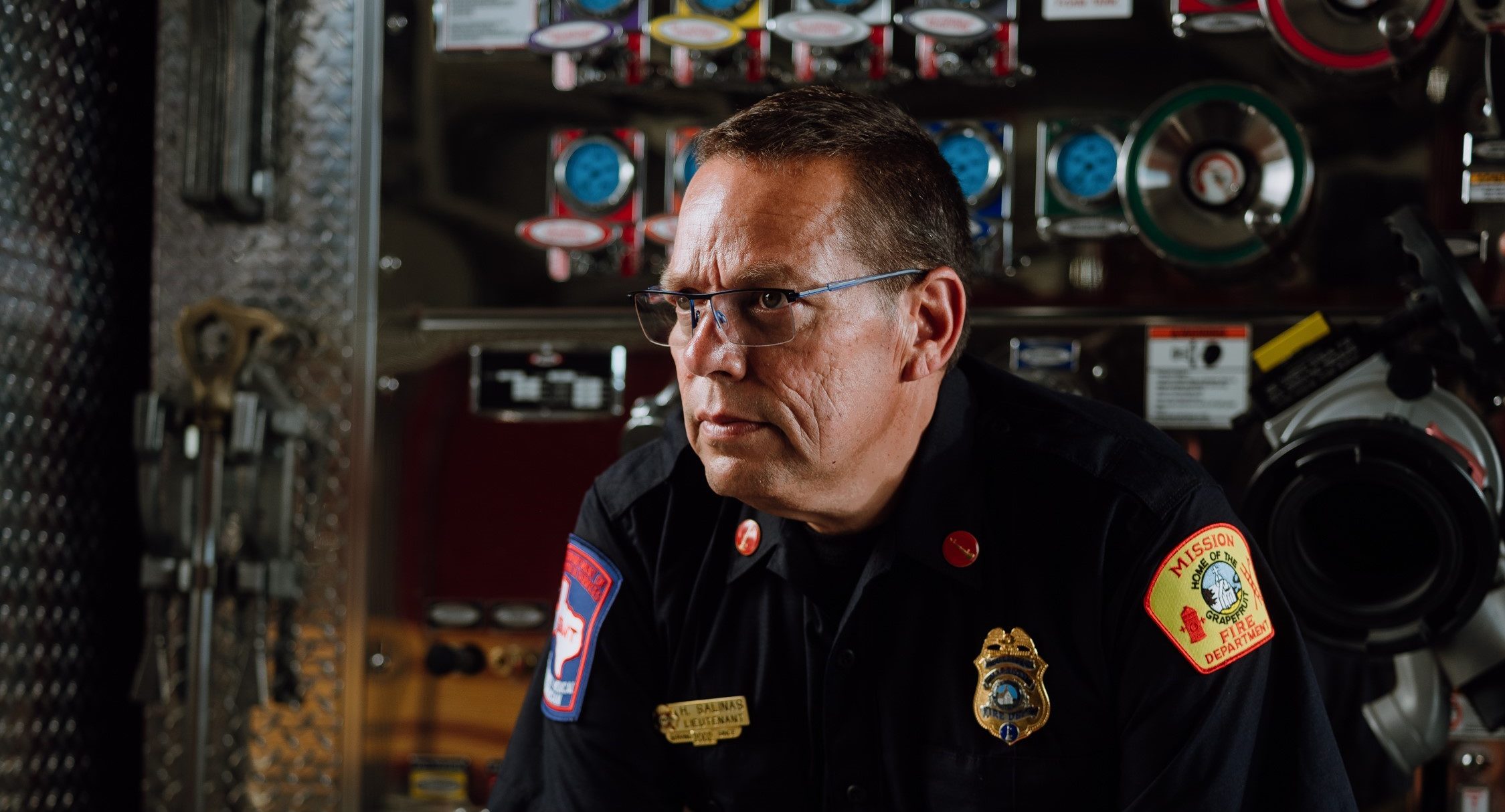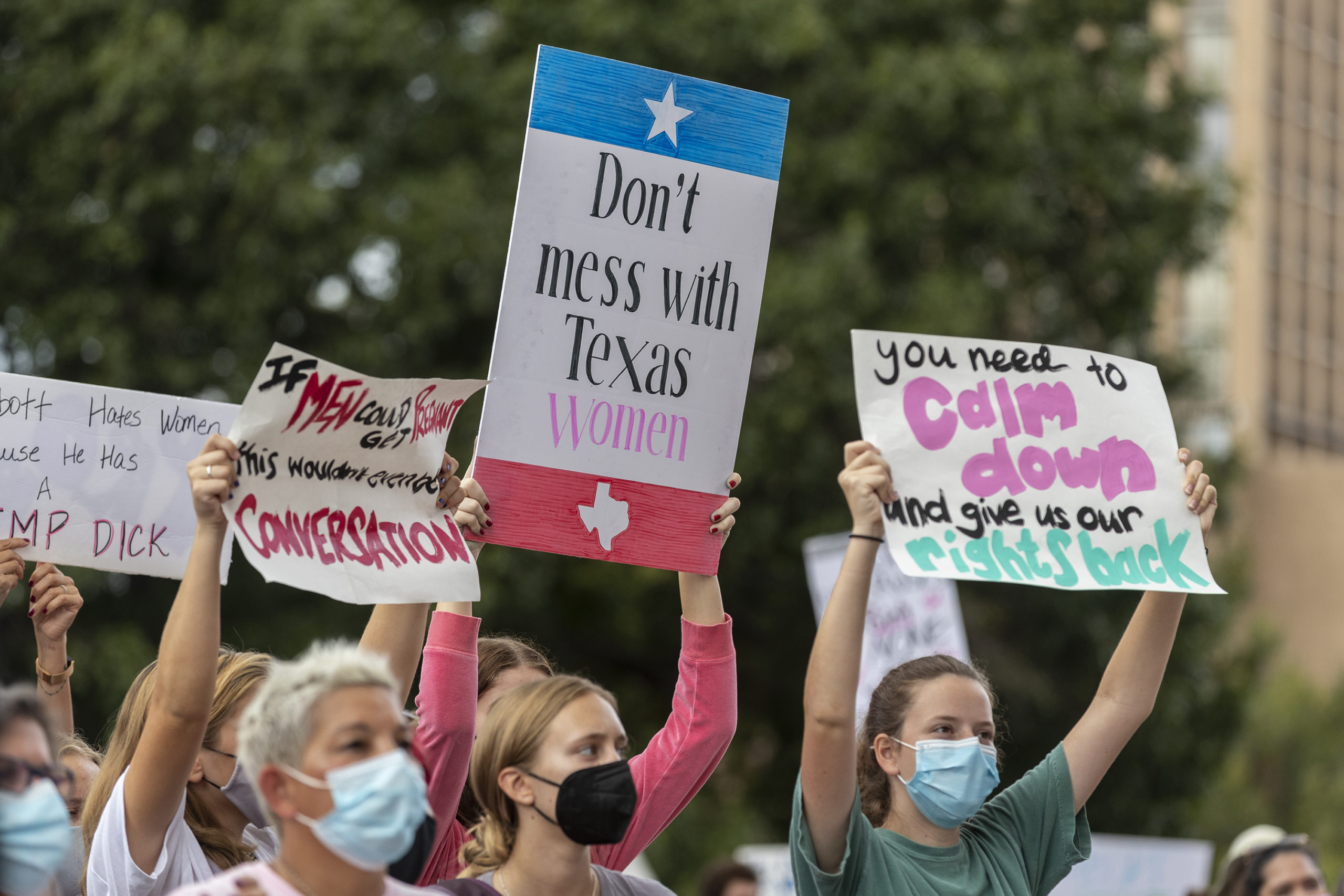
For the First Time, ‘Redeemed’ Texas Parents May Get a Second Chance
New legislation could open a legal pathway to reinstate once-terminated parental rights.

Maggie Luna tried to fit all of the love she had for her three children onto a tri-fold poster board a week before her court date. Each section of the plain white board was adorned with a photo timeline dedicated to one of her children, illustrating Luna’s presence in their lives from birth up until the day they were taken from her. It was a desperate attempt to persuade a Harris County judge to let her keep the kids.
But the judge didn’t bother to look up at her or her poster before terminating Luna’s rights to her children.
When she lost her parental rights in 2015, Luna was battling drug addiction, in an abusive relationship, and struggling to hold down a job that could support her three children. Six years later, she says she’s in a much better place. Luna has spent the last three years sober, in therapy, and learning how to use her own experiences to push for change through advocacy work. Now, she’s hoping for another chance at motherhood.
About 5,500 parents in Texas lose legal rights to their children every year. A bill passed by the Texas Legislature this session could give parents a pathway to getting those rights back for the first time, giving many parents and their children in foster care a second chance to reunite as a family.
“This is a great change for Texas,” says Kate Murphy, senior child welfare policy associate at Texans Care for Children. “We know that redemption is possible and circumstances change. It’s really exciting to give families a second chance, and to do it in a way that is thoughtful and safe, when that’s something that is desired by both the child and the parent.”
Luna grew up in a home with alcoholism and domestic violence, but she managed to stay afloat for most of her childhood. She was in Pre-Advanced Placement classes and played the bass clarinet in the school marching band. She dreamed of joining a symphony one day. But at the age of 16, when her parents separated, it became harder to cope with life at home. That’s when her battle with addiction started.
“I went from being this straight A’s, amazing student, to smoking weed with these other kids and skipping classes,” she says.
In the years following, Luna developed an addiction to meth and heroin. When she became a mother, she says she was ashamed that she wasn’t strong enough to stay clean for her kids. In 2008, Child Protective Services was called on her due to her drug use. They placed her on a service plan, which included rehabilitative treatment. Luna says it only became more difficult to be honest and reach out for help, because she feared her children would be taken from her.
“I knew what I was doing was wrong. Every single day was a battle with myself, like, why can’t I get it together? Why can’t I stay clean and keep it together for my children?” Luna says. “I just couldn’t keep my head above water, but I couldn’t ask anyone for help because I didn’t want to lose my kids.”
In 2011, Luna was caught writing fraudulent checks. An investigator told her that if she was honest and cooperated fully, they would work with her because she was a mother. Luna says it felt like an opportunity to finally ask for help. She cooperated, and ended up in prison for two years. After getting out of prison, Luna says she relapsed, ultimately failing a drug test in 2015, resulting in the termination of her parental rights.
“When they took my kids, I spun out of control,” Luna says. “I had no reason to want to get better anymore.”
She says she resigned herself to the idea that things were never going to get better, and ended up in prison again the next year on a drug possession charge. It wasn’t until her mother managed to adopt Luna’s eldest child, and started bringing her in for visitations, that she began to see a path forward. She got into Santa Maria Hostel in Houston, a halfway house and treatment center for women, and then to a women’s home. She learned how to write a resume, took financial planning classes, and even embraced religion for the first time in her life. Luna credits the women she met through those programs for turning her life around.
While she found a way to maintain a relationship with eldest, she hasn’t had contact with her other two children since 2015. The youngest, a girl, was quickly adopted by another family. Her son, who was five years old at the time, has still not been adopted. Luna says he has been in and out of foster homes over the years, and is heavily medicated for multiple mental illnesses including schizophrenia and bipolar disorder.
“Honestly, I believe my girls are in better spots right now. This is not for me to rip my daughter from the adoptive home that’s been caring for her,” Luna says. “But my son, he’s suffering. Why is he sitting in foster care? I have an extra room for him to come home to. I have plenty of food, a brand new car. Just give me a second chance.”
Luna believes that her son’s struggle with mental illness is a result of trauma. He’s been taken from his mother, been separated from his siblings, and Luna fears, abused in foster care. “I don’t know what he’s going through in the system, and that terrifies me,” Luna says. “But who better to help him with what he’s going through than someone who knows what it’s like to be traumatized at that age? Someone who has gone through it.”
Julia Hatcher has worked as a family defense attorney in Texas for more than 20 years. She says the law could not only help parents who deserve a second chance, but also kids in foster care who have a slimmer chance of adoption. About 1,200 Texas children age out of foster care every year and are at a significantly higher risk of experiencing homelessness, economic insecurity, and becoming involved with the justice system themselves. Hatcher says getting children out of foster care and into stable loving homes should be the priority, especially in light of an ongoing federal lawsuit that accuses the state of neglecting foster children.
While the bill could potentially help Luna reunite with CJ, it only grants a pathway to parents whose rights were involuntarily terminated: In other words, parents who went to court instead of handing their children over to Child Protective Services willingly. Parents who voluntarily signed their children away to the state, won’t be able to use this new avenue to reunite their families.
CPS got involved with Sommer Brooks’ family in 2017, when someone made a call suspecting drug abuse while the family was temporarily living out of a hotel. Not long after, she was arrested and ordered to a residential treatment program in Harris County. When she completed the program and moved into a transitional living home, Brooks found out CPS was trying to terminate her parental rights for not complying with a previously agreed upon service plan that required she maintain a job and a place of residence.
“They really railroaded me to relinquish my rights permanently,” Brooks says. “They basically told me that if I didn’t relinquish my rights voluntarily, that it would jeopardize my rights to my other children. And if I wanted to have any kids in the future, they would be forced to remove my child from me before I left the hospital.”
Julia Hatcher says this kind of pressure by CPS isn’t uncommon. “Unfortunately they use that as a threat to coerce parents into signing voluntary relinquishments,” she said. Brooks relinquished her rights to her 18-month-old son, and currently has no way of getting him back.
“We need mothers to tell these stories,” Luna says. “We inherently trust the system, but we’ve got a lot of work to do.” She has shared her personal testimony at the Texas Legislature a number of times in hopes that it inspires change for other other families, and that it helps mend her own.
“I may not ever see my kids until the day that they come looking for me themselves,” Luna says. “But I’m going to keep fighting like they could come home tomorrow. I want them to know that I kept trying.”


